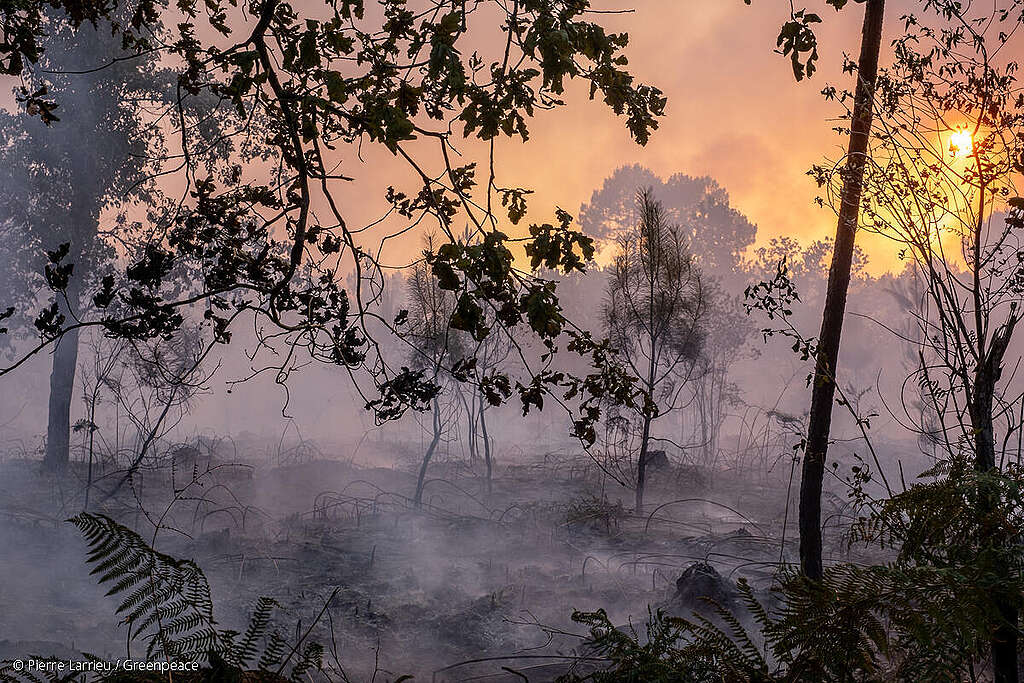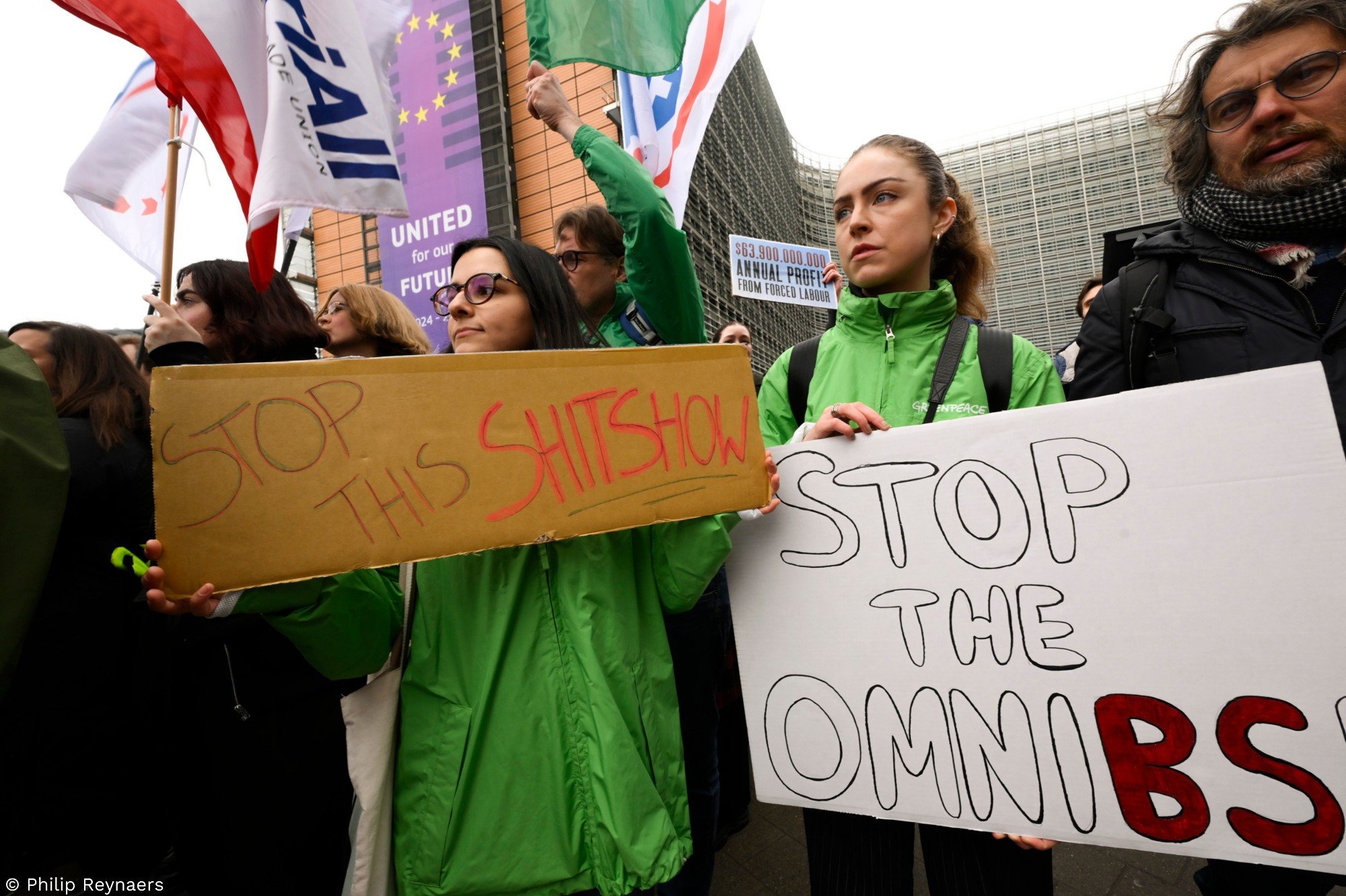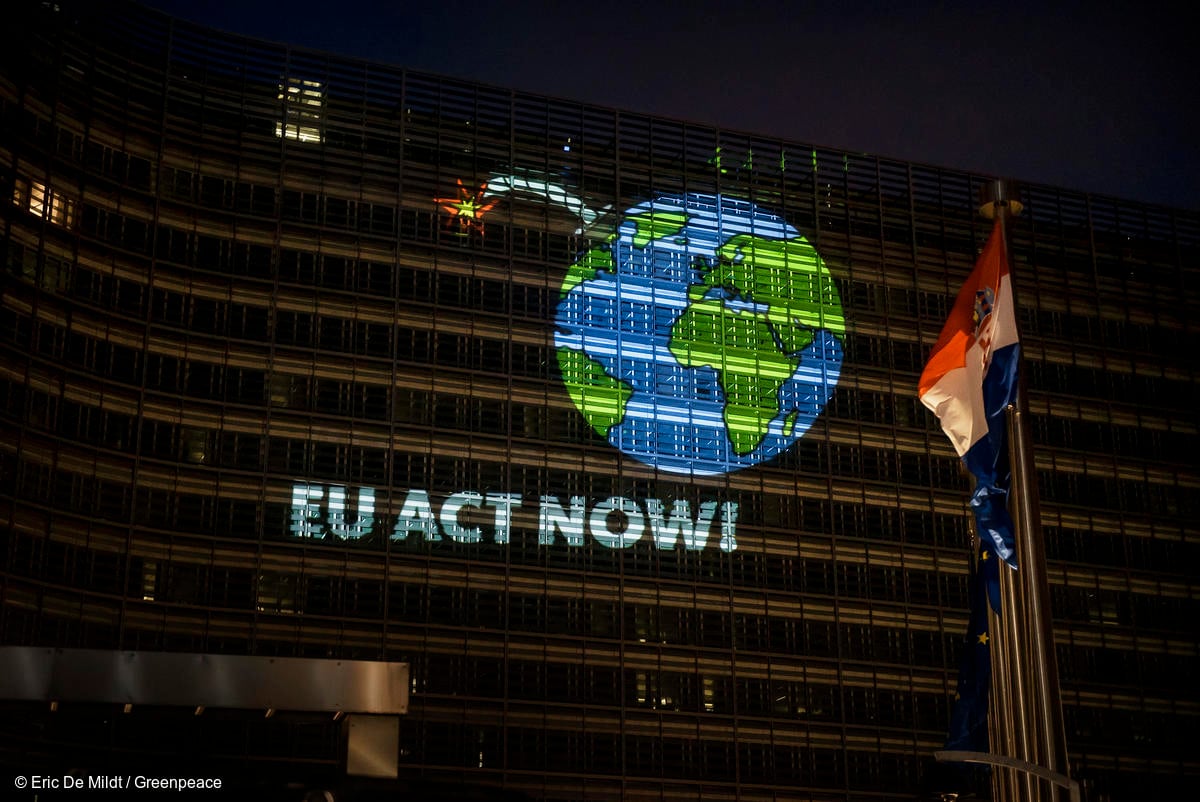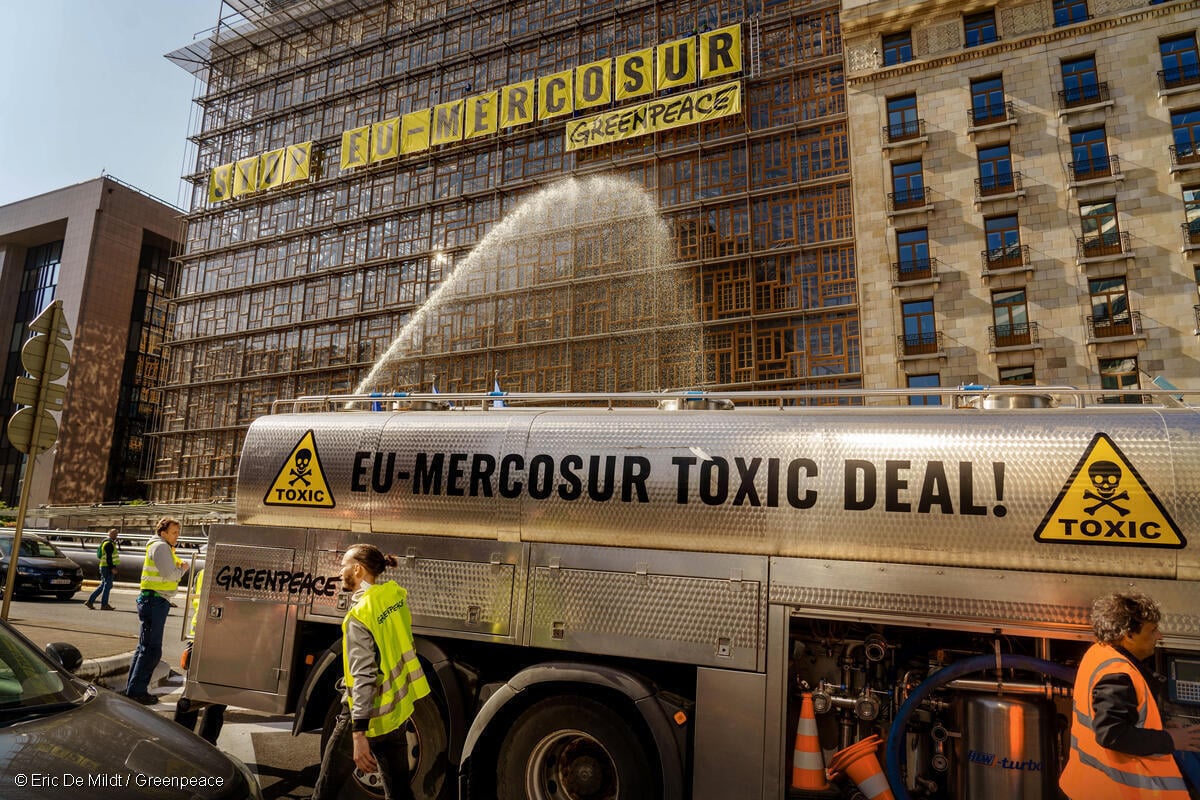
Brussels, 9 June 2024 – Polls have closed in most of the 27 countries of the European Union, where voters are casting their ballots to elect the 720 members of the European Parliament (MEPs) who will serve until 2029.
Greenpeace EU campaigner Ariadna Rodrigo said: “Whatever the final make-up of the new European Parliament, voters still rank climate change and saving nature among their top concerns, and a clear majority want the EU to take action in these areas in the next five years. This election will not make the climate and nature crisis any less existential. Flooding, droughts and heatwaves will only get worse, and all newly elected politicians will have to act to maintain our planet’s ability to sustain life and give our children a future. Whoever is in power, we will hold them to account and remind them of their responsibility.”
The level of voter support for EU environmental action has remained high since 2019, and in fact has increased marginally from 83% to 84%. European voters continue to rank climate and environment as the second-most important issue the EU should tackle in the medium term, after security and defence.
Europe is the world’s fastest-warming continent. Extreme weather events, like the recent deadly floods in southern Germany, are becoming more frequent and intense. The European Environment Agency, in a first-of-its-kind study earlier this year, found that Europe is drastically unprepared for the impacts of climate change, which is wreaking havoc with ecosystems and threatening Europe’s energy and food security, infrastructure, water resources, financial stability, and people’s health.
Who gets the top jobs?
National and European politicians will now spend the coming weeks and months in tit-for-tat negotiations to fill the top jobs of EU institutions, mostly behind closed doors. Who gets what will depend on politicians making deals as to the balance of the candidates’ party group affiliations, geographic distribution, competence, known policy positions, gender, nationality and other factors.
The most coveted roles in this process are the presidencies of the European Commission, European Parliament, and European Council, respectively held currently by Ursula von der Leyen, (CDU/EPP, Germany), Roberta Metsola (PN/EPP, Malta) and Charles Michel (MR/Renew, Belgium). By convention, a politician from the party group which wins the most seats in the European election gets the Commission President job
Next steps
European heads of state and government will gather for an informal dinner in Brussels on 17 June, returning for a summit on 27 and 28 June at which they are expected to name their nominee to become the next president of the European Commission and publish their Strategic Agenda, which will influence EU priorities for the next five years.
Over the next few weeks, the national government of each EU country will nominate one person to become a European Commissioner, and inform the Commission president-designate of their choice. Some governments have already announced who they will put forward.
The new European Parliament will meet in plenary in Strasbourg for the first time between 16 and 19 July. MEPs will elect the next president and vice-presidents of the European Parliament, create the parliament’s committees and decide their composition.
The Commission president-designate is expected to present their political programme to the European Parliament during a plenary debate in September. The Commission president-designate will then issue “mission letters” to the 26 nominees to be Commissioners from other countries, assigning each of them a portfolio. The nominees will then be vetted by the relevant committees of MEPs in October and November.
The parliament will then vote in plenary on whether to appoint the Commission as a whole, including the president and all prospective Commissioners, probably in late November. If they are approved by the Parliament, the new president of the European Commission and their “College” of 26 Commissioners should take office by December 2024.
Contacts:
Ariadna Rodrigo, Greenpeace EU campaigner:, [email protected], +32 (0) 2 274 1922
Greenpeace EU press desk: +32 (0)2 274 1911, [email protected]
For breaking news and comment on EU affairs: WhatsApp and X
Greenpeace is an independent global campaigning network that acts to change attitudes and behaviour, to protect and conserve the environment and to promote peace. We do not accept donations from governments, the EU, businesses or political parties. Greenpeace has over three million supporters, and 26 independent national and regional organisations with offices in more than 55 countries.
EU Transparency Register: 9832909575-41



